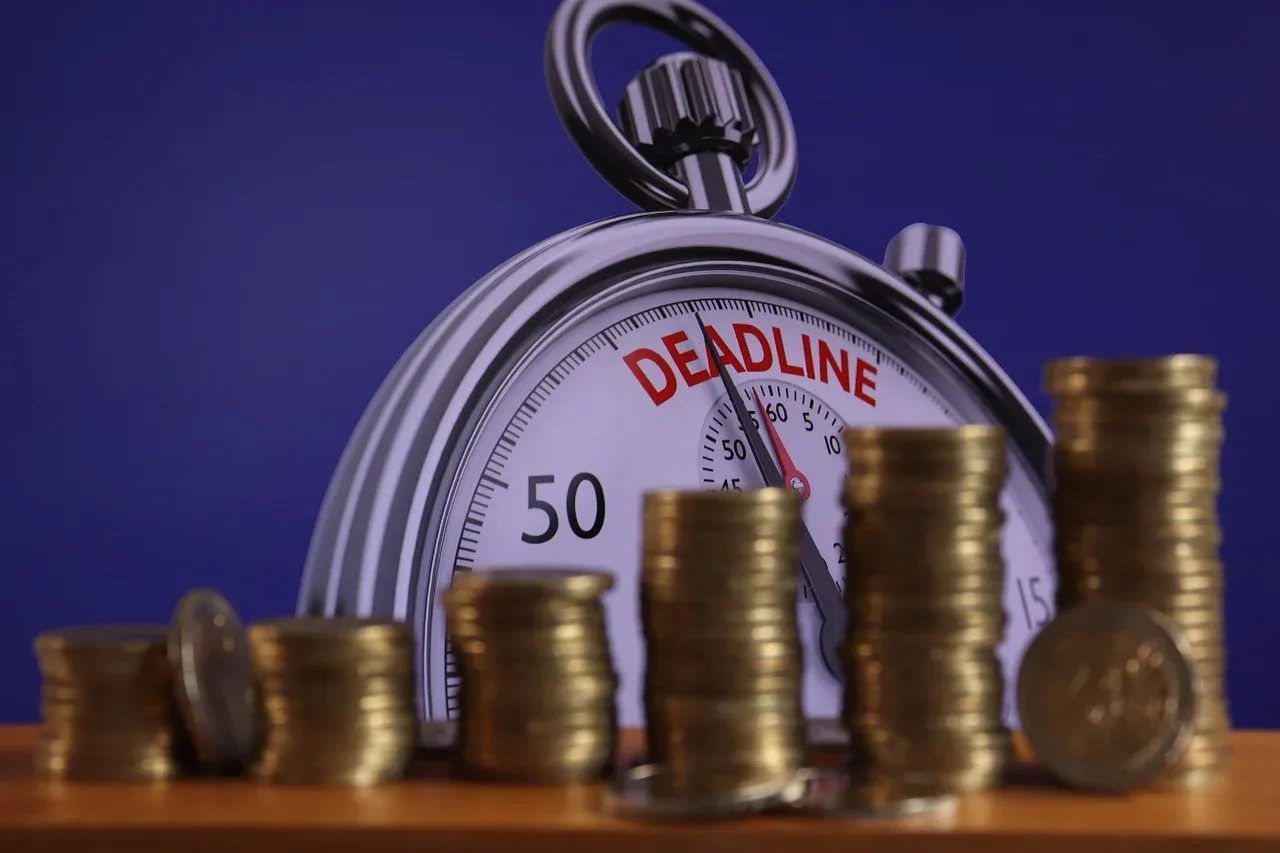Don't Use Up Tomorrow's Treasure Today. Borrow wisely!

Image source - Pixabay
The modern financial landscape has made debt to become an almost ubiquitous part of life. Many people find themselves embracing the complexities of borrowing and repayment for personal needs, education, business, mortgages, etc. In some emerging economies like Nigeria, credit and loans have become an emerging business sector with millions of patronage and technology makes accessibility to these loans quite seamless and fast. Many people believe that "everyone is in debt".
While debt can be a useful tool when managed wisely, it can also become a significant burden if not handled with care. This is why the wisdom of "Don't use up tomorrow's treasure today" is particularly relevant, offering a valuable perspective and approach to debt management.
The Temptation of Immediate Gratification is Real
Today, the allure of instant gratification can be overwhelming. Waiting has become a plague in an age where the click of a button can satisfy most desires almost instantly—whether it’s ordering food, buying the latest gadget, or streaming a new movie. Without a doubt, the allure of immediate gratification is one of the primary reasons people fall into problematic debt.
Credit cards, for instance, now provide an easy way to purchase items and experiences without having to wait until the money is actually in hand. While the convenience of fast and immediate payments is undeniable, there’s a deeper cost to this lifestyle that often goes unnoticed: the depletion of our future resources and opportunities. It often leads to long-term financial strain.
Using credit to fund a lifestyle beyond one's means is akin to using up tomorrow’s treasure today. The purchases may bring momentary joy, but they come at the cost of future financial freedom and may become addictive. Interest charges and repayment obligations can quickly accumulate, creating a cycle of debt that becomes harder to escape.
Financial Prudence is Crucial
Financial prudence involves making thoughtful decisions about when and how to use credit. It's about recognizing the difference between good debt and bad debt. Good debt, such as a mortgage or a student loan, is typically an investment in one's future, potentially leading to increased value or earning potential. Bad debt, on the other hand, often involves borrowing for depreciating assets or discretionary spending that doesn't contribute to long-term financial growth.
Where there is no prudence, overborrowing is inevitable. High levels of debt can damage credit scores, making it more difficult to secure favorable terms for future loans or mortgages. It can also lead to increased stress and anxiety, impacting overall well-being.
Furthermore, debt repayment obligations can limit future opportunities. Money that could have been saved or invested for future goals—such as buying a home, starting a business, or retiring comfortably—is instead directed toward paying off past debts. This diminishes the ability to build wealth and achieve financial security.
Before you Take that Loan or use that Credit Card
Here are questions you should answer before taking that loan.
1. What's your Budget?
Creating a budget is important if one must manage debt well. A detailed budget helps track income and expenses, ensuring that spending aligns with financial goals. This can prevent unnecessary debt accumulation by highlighting areas where spending can be reduced.
2. What are your Repayment plans?
I knew about a young student person who took a loan to fund his education. He took 7x of the amount needed for the fee with the plans to use the remaining six parts to start up a business. He then decided to gamble with that part to double it and eventually lost everything. He committed suicide thereafter. Sad experience it was but this was borne out of greed and speculations as he didn't draw a definite plan to repay a loan.
Focusing on paying off high-interest debt first can minimize the amount paid in interest over time. This strategy, known as the avalanche method, helps reduce the overall cost of borrowing.
3. Do you have an Emergency Fund?
Having savings set aside for unexpected expenses can prevent the need to rely on credit cards or loans in times of crisis. This will protect one's future financial stability.

Image source - Pixabay
Beyond Money...
Don't use up tomorrow's treasure today" is a timeless piece of wisdom that can be applied beyond money. This concept can be applied in environmental stewardship, and to our physical and mental well-being. This is because there is room for overspending in those aspects which can lead to debt.
Environmental Debt
The principle also applies to how we interact with our environment. Environmental debt is possible. The natural resources we rely on are finite, and our current rate of consumption is unsustainable. Deforestation, overfishing, and fossil fuel dependence are prime examples of how we are using up tomorrow’s treasure today.
Sustainable practices, such as using renewable energy, conserving water, and reducing waste, are essential to ensure that future generations inherit a world capable of supporting life. The concept of stewardship, often highlighted in religious and ethical teachings, reminds us that we have a responsibility to manage resources wisely, not just for our benefit, but for the future as well.
Health Debt
Our health is another area where this principle holds significant importance. Health debt is possible and can be traced to the decisions we make today about our diet, exercise, and stress management have long-term impacts on our physical and mental well-being. Consistently neglecting our health by eating poorly, avoiding exercise, and living under constant stress can lead to chronic diseases and mental health issues.
One must intentionally invest in healthy habits today is akin to saving for the future. This will ensure that we maintain our vitality and quality of life as we age. Eating a balanced diet, exercising regularly, and taking time to relax and rejuvenate can go a long way in preserving our health are some of the tips.
Dotting the "i"s
Dealing with immediate gratification which is a major factor of debt creation would require patience and planning. At its core, not using up tomorrow's treasure today, invites us to take a step back and evaluate the long-term effects of our actions, encouraging a more thoughtful and balanced approach to living.
To be continued...

If you found the article interesting or helpful, please hit the upvote button, and share for visibility to other hive friends to see. More importantly, drop a comment below. Thank you!
This post was created via INLEO, What is INLEO?
INLEO's mission is to build a sustainable creator economy that is centered around digital ownership, tokenization, and communities. It's Built on Hive, with linkages to BSC, ETH, and Polygon blockchains. The flagship application: Inleo.io allows users and creators to engage & share micro and long-form content on the Hive blockchain while earning cryptocurrency rewards.
Let's Connect
Hive: inleo.io/profile/uyobong/blog
Twitter: https://twitter.com/Uyobong3
Discord: uyobong#5966